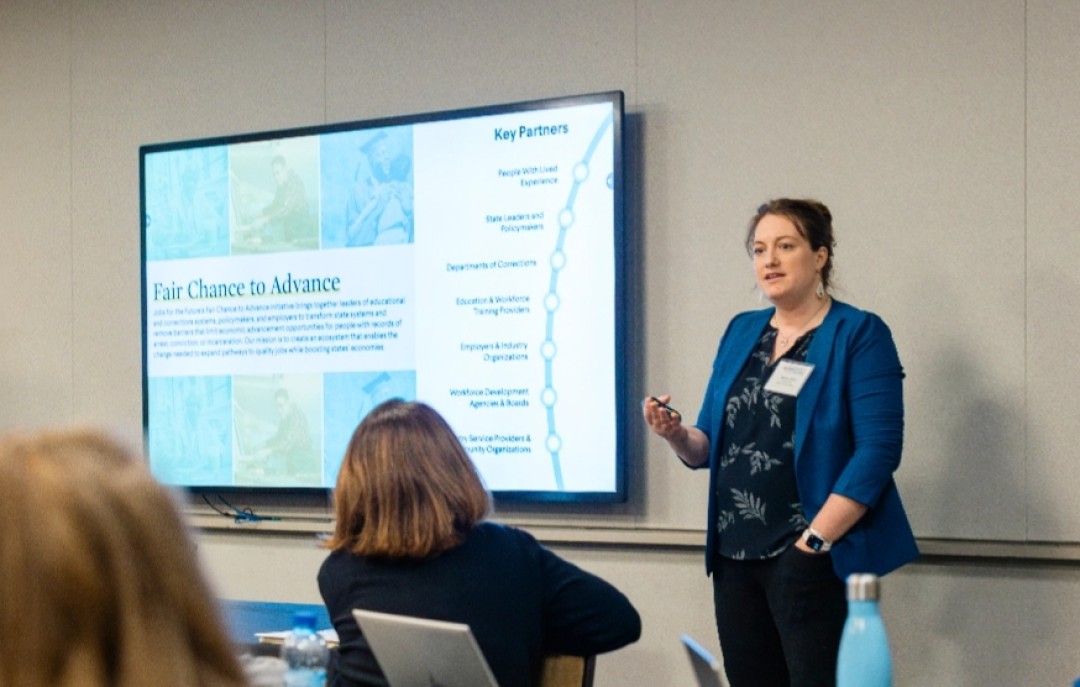How We Approach Grantmaking
Most good jobs — those that pay a living wage, provide benefits, have consistent, predictable schedules, and offer opportunities for career growth — require some kind of formal postsecondary education or specialized workforce training. Unfortunately, not all programs are created equal. Many aren’t designed to effectively serve and support learners from low-income backgrounds. Some aren’t aligned to employer or local labor market needs, leaving the learners who complete them no better off.
We believe these systems can be changed to better serve learners, but such changes should be grounded in evidence-based solutions. In line with this belief, we make grants to:
- Identify gaps between what exists and what learners need.
- Identify promising models and innovations that close those gaps.
- Build evidence about what works and develop insights about the conditions that enable or prohibit their effectiveness.
- Equip those positioned to influence public policy or other levers of scale with that evidence so the most effective solutions extend beyond what philanthropy alone can accomplish.


How We Award Grants
We partner with organizations whose objectives align with our core strategies to Expand Opportunity, Support Learner Success, and Connect and Align Systems. Our grantees include postsecondary education and workforce training providers, intermediaries, researchers, and media organizations from across the U.S.
Our grant application process is typically by invitation only, meaning we don’t accept unsolicited letters of inquiry or proposals. On occasion, we do issue open requests for proposals as part of specific initiatives.
How We Advance Solutions
Our commitment to building evidence includes identifying innovative solutions, validating those that show promise, and strengthening the conditions for those with the strongest evidence to reach greater scale. Across our core strategies, we make exploration, validation, and scaling grants based on what we know and don’t know about what works, for whom, and under what conditions.
How We Amplify Change
Our goal of transforming systems requires changemakers to understand the barriers learners from low-income backgrounds face and the most effective solutions for removing them. We partner with nonprofit media organizations to report on these critical issues with key audiences, thereby creating a sense of urgency for change and inspiring action for those able to enact it.

How We Address Learner Needs
Learners from low-income backgrounds are diverse. So, too, are the barriers they face. Our North Star reflects our commitment to understanding and addressing those barriers so all learners have the opportunity to succeed in postsecondary education and workforce training. To that end, we identify race, rurality, and incarceration as key systemic factors impacting opportunity for learners from low-income backgrounds. We name these to help us stay focused on learning not only which solutions work, but also the learners for whom they work so we can achieve our mission to champion opportunity for everyone.
Across our grantmaking, we also partner with organizations focused on addressing barriers faced by other populations of learners from low-income backgrounds, including student veterans, first-generation students, adult students, parenting students, and others. In all facets of our grantmaking, we seek data-driven innovations and work to build evidence for solutions that can improve opportunity at scale.
OUR NORTH STAR
We envision a world where more low-income learners succeed in postsecondary education and workforce training as a path to upward mobility, regardless of race, rurality, history of incarceration, or other factors.